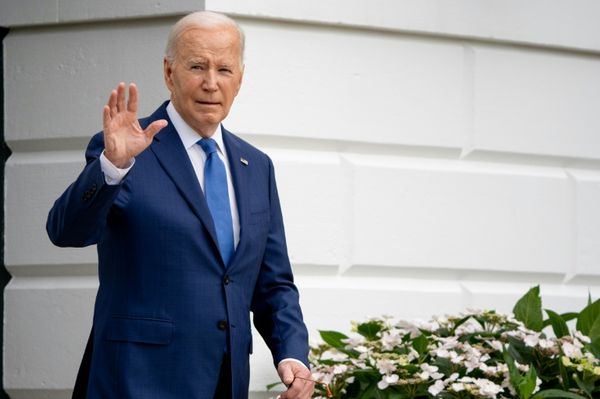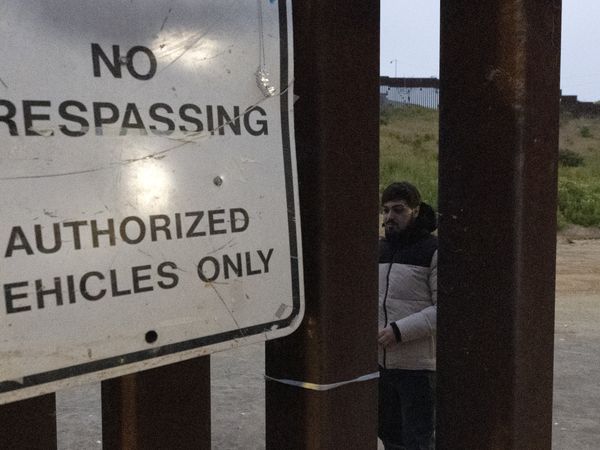
The Howard government drafted a statement declaring its support for an emissions trading scheme 20 years ago, only for the idea to be scuttled by business lobbying, newly released documents show.
Cabinet papers from 2003, released by the National Archives on Monday, show the then Coalition government was in possession of clear advice from Treasury that a broad-based market mechanism would be the cheapest way to reduce emissions.
In July of that year, Peter Costello, Alexander Downer and Joe Hockey were among ministers who put their names to a cabinet submission saying the government should announce it would back an ETS in the long term to provide “the most cost effective transition path”.
But on 8 September 2003, the cabinet pulled the pin on the idea.
Cabinet records confirm the trigger for the decision was “an oral report from the prime minister on his meeting with industry leaders who expressed opposition to any government announcement of a disposition toward emissions trading as the preferred policy instrument for managing future emissions”.
The 2003 cabinet debate marks yet another sliding doors moment in Australian climate policy, which has played a role in the downfall of multiple prime ministers.
Four years later, in the run-up to the 2007 election, Howard finally promised that a re-elected Coalition government would pursue an ETS, although critics said the 11th hour conversion was not credible. Howard went on to lose the election.
Robert Hill, a former environment minister in the Howard government, said climate policy had “a tortured history” in Australian politics.
“We still don’t have it [an ETS], and yet a lot of people still say it’s the most sensible, rational tool to address the issue,” Hill said.
“I think there was probably more chance of us making it stick than the Labor party making it stick, so I think in retrospect we should have pushed on with that at that time.”
Kevin Rudd defeated Howard in 2007 on a campaign that focused heavily on climate action, but he could not get his ETS package through the Senate and lost political capital when he deferred his plans.
Julia Gillard’s introduction of a three-year fixed carbon price, as part of a transition to a market-based ETS, sparked an unrelenting political campaign alleging she had broken an election promise that there would be “no carbon tax under a government I lead”.
The scheme was abolished in 2014 after Tony Abbott led the Coalition back into government. Abbott’s chief of staff, Peta Credlin, later admitted that Gillard’s policy was not a carbon tax but “we made it a carbon tax” as part of “brutal retail politics”.

Malcolm Turnbull’s dumping as prime minister in 2018 was fuelled by an internal brawl within the Coalition about a proposed emissions reduction target for the electricity sector.
Turnbull later alleged that the Coalition had “a fundamental problem in dealing with climate change” because of “a group within the Liberal party and the National party who deny the reality of climate change”.
It was already known that Howard overruled advice favouring an ETS in 2003, but the newly released papers show the extent of the policy work that had been carried out by numerous ministers and departments.
In an attachment to a cabinet memorandum dated 25 February 2003, Treasury warned that “the current approach to domestic emissions mitigation is not a sustainable long term approach, with its heavy reliance on spending programs, prescriptive regulation and ‘picking winners’”.
Treasury said this would come “at a very high economic cost” whereas any credible long-term climate change strategy must involve shifting the bulk of the responsibility to emitters.
It said a broad-based market mechanism, such as an ETS, had the benefit of “inducing a least-cost path to reducing emissions and best positioning the economy to respond to future developments”.
Later in the year, a cabinet submission from the environment minister, David Kemp, and three other ministers recommended announcing emissions trading “as the government’s preferred long-term emissions management policy on the basis of efficiency and cost effectiveness”.
“If the government seeks future emissions reductions an emissions trading system, introduced while costs are low, could provide the most cost effective transition path,” said the submission, also signed by the treasurer, Peter Costello, the foreign minister, Alexander Downer, and the acting industry minister, Joe Hockey.
At the climate conference that adopted the Kyoto protocol in 1997, Hill had secured a number of concessions favourable to Australia and did not commit to decreasing emissions by 2012. Instead, Australia was allowed to increase its emissions by 8% against 1990 levels.
The cabinet submission in July 2003 said that an agreement with the Queensland state government to reduce land clearing had the potential to put Australia on track to meet this 2012 emissions target without any further policies.
That meant any ETS would not have to kick in quickly, and Australia had “an opportunity to establish a long-term domestic emissions management framework with limited additional economic cost before 2012”.
Officials had drafted a public statement that said the government’s preferred mechanism was “a broad based market signal through a national emissions trading system”.
The draft statement, which was never used, said this was better than if the government solely used public funding to drive cuts to Australia’s emissions over the long term, which “would come at an unsustainable cost to the budget”.
“More importantly, a fiscal support approach would not deliver the efficiencies of enabling businesses to choose the most appropriate abatement path for them and would be less effective in laying a foundation for a long-term national greenhouse response,” the draft statement said.
The cabinet papers also reveal that the environment department urged the Howard government to “make specific reference to climate change” when it was preparing to issue a new foreign policy white paper.
The department warned about the tone of a proposed section on environmental issues, saying the text was “too strident” and would “not help Australia’s domestic and international presentation as a country genuinely concerned about environmental challenges”.







